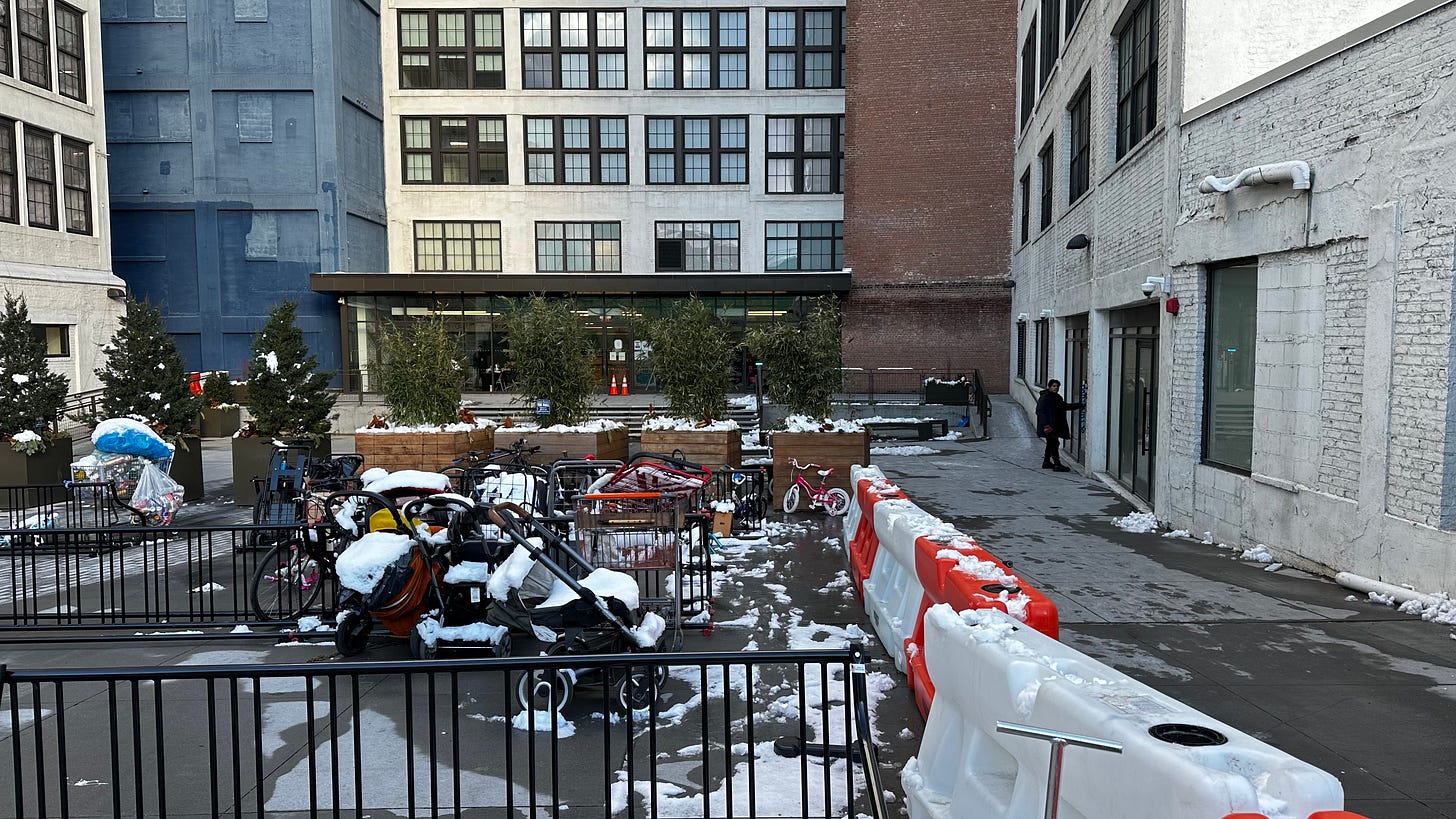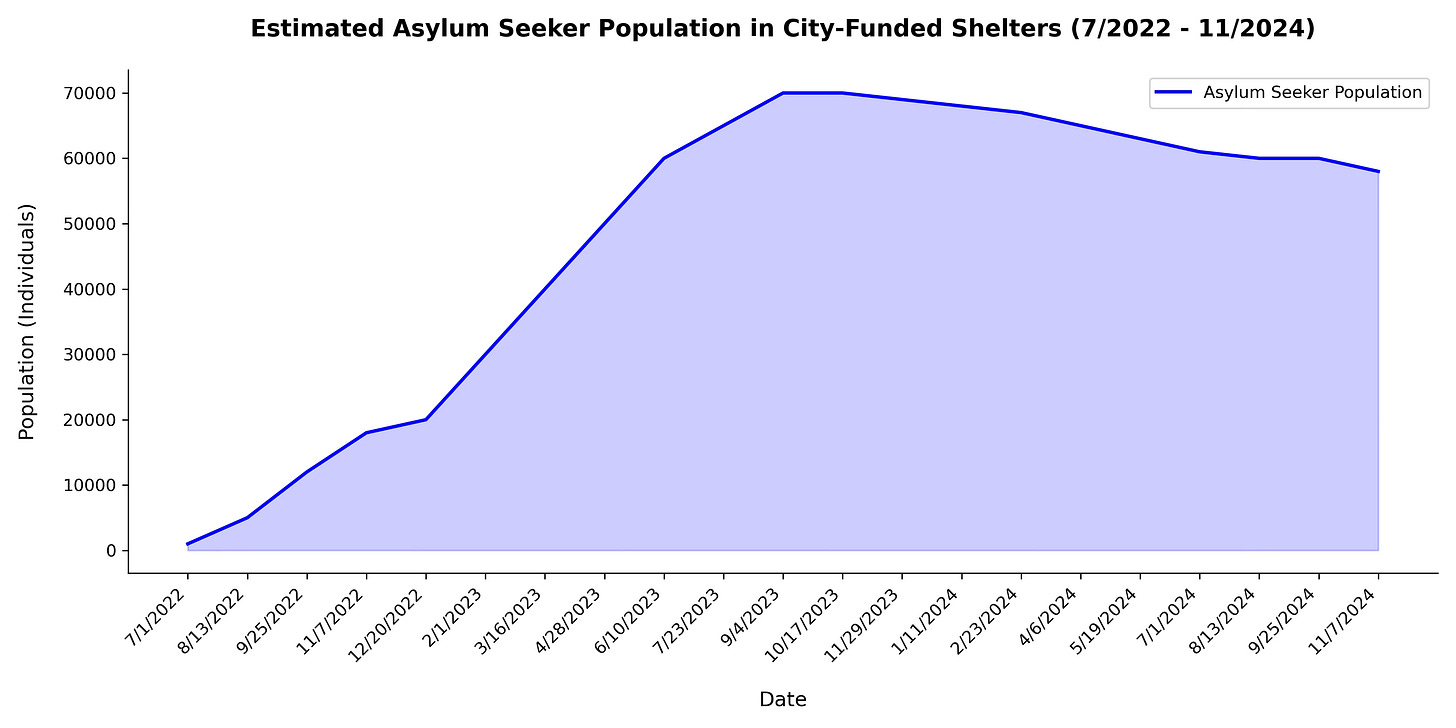NYC Prepares to Close 10 Migrant Shelters Amid Declining Arrivals
As the city experiences a significant decline in asylum seeker entries, plans to shutter shelters citywide raise concerns about safety, stability and the need for permanent housing.
New York City is set to close 10 additional migrant shelters around the city, a move that reflects the shifting dynamics of migrant arrivals.
In December 2024, the city experienced an 18-month low in asylum seeker entries, prompting a strategic consolidation of resources.
Among the closures is the controversial facility at 47 Hall Street in Brooklyn's Clinton Hill neighborhood, nicknamed “The Hall.” The shelter has been plagued by safety issues and reports of gang-related violence.
Despite previous hesitations to shut “The Hall” down due to limited relocation options, the city has now scheduled its closure, along with other shelters across Brooklyn, Manhattan, Queens, Staten Island, and Yonkers, by June 2025.
“Living at The Hall was difficult, it was unsafe, the food was terrible,” said Angel Urbina, former resident of The Hall, sharing his perspective on the closure. “I hope they can find more permanent housing like me.”
The city's migrant shelter population has seen a consistent 27-week decline, decreasing from a peak of over 65,000 to under 51,000 individuals. This trend is partly due to federal actions, including executive orders by the Biden-Harris administration, which have significantly reduced the rate of asylum seekers arriving in the city.
"We will continue to do everything we can to help migrants become self-sufficient,” said Mayor Adams in a statement. “While finding more opportunities to save taxpayer money and turn the page on this unprecedented humanitarian crisis."
In addition to the Clinton Hill facility, the city plans to shut down the large tent shelter at Floyd Bennett Field in Brooklyn by January 15, 2025. This facility, which housed more than 1,800 migrants, is one of the 25 shelters slated for closure as the number of new arrivals continues to decline.
Despite the wave of closures, the city is opening a new shelter in the Bronx, intended to accommodate single men currently housed at the Randall's Island tent camp, which is also set to close.
The new Bruckner Boulevard center will house up to 2,200 individuals in a seven-story warehouse building, underscoring the city's ongoing struggle to provide shelter while managing resources efficiently.
Advocates have criticized the city's approach to sheltering and constantly moving migrants around the city.
"Instead of investing in stable, long-term housing, Adams is playing a game of shelter whack-a-mole,” said Murad Awawdeh, President and CEO of the New York Immigration Coalition. “Shuffling people around without regard for schooling, family stability, or work opportunities."
They argue that the city's reliance on temporary solutions fails to address the underlying needs of migrant families.
Many have called for increased investment in permanent housing programs and expanded access to housing vouchers, such as CityFHEPS, which can help migrants establish stability and integrate into local communities.
“Shelters are not a permanent solution. As migrants continue to seek new opportunities in our city, we must create new pathways to permanent housing,” said Queens Councilmember Julia Won in a statement. “We request the Mayor provide additional resources to make sure that families are receiving access to health care, mental health services, job assistance and wraparound services.”
As the city navigates this evolving humanitarian landscape, the balance between providing necessary support to migrants and addressing community concerns remains a critical challenge for the Adams administration.



